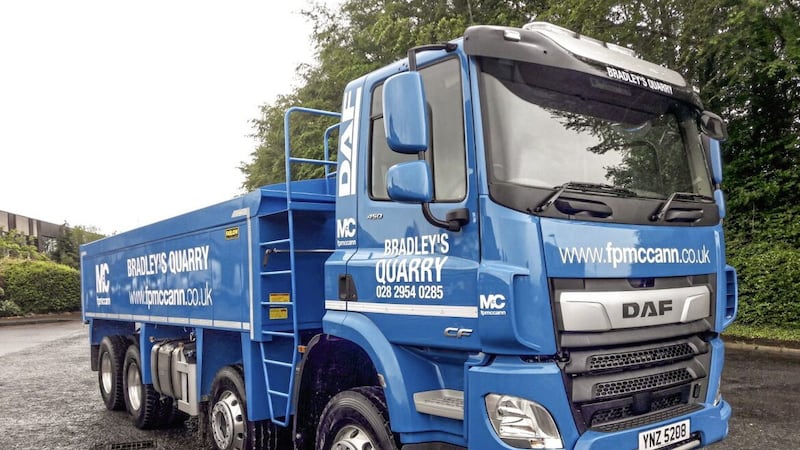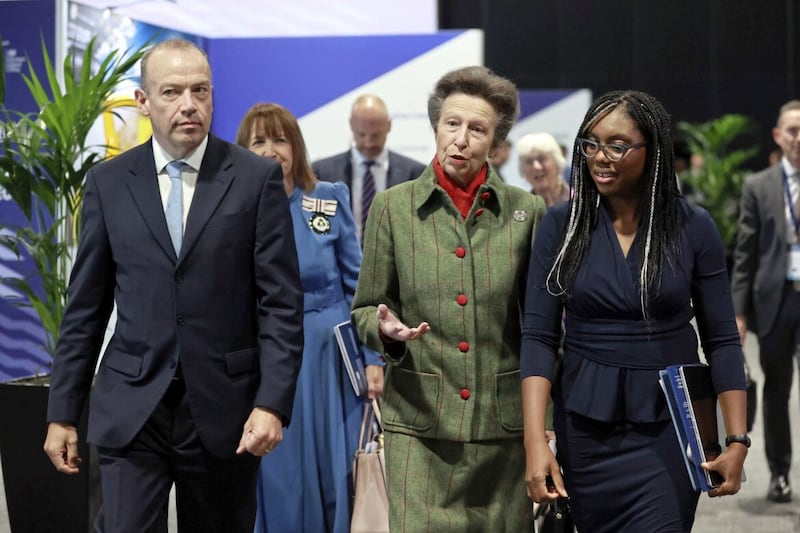LAST month the Office of National Statistics reported that business investment across the UK had fallen by 0.7 per cent between quarter one and two this year, which followed a 0.5 per cent fall the previous quarter.
Transport equipment (an important sector for the Northern Ireland economy) saw the biggest investment declines, while intellectual property products, ICT equipment and other machinery and equipment saw small increases. Unfortunately, the latter increases were not enough to offset the larger falls that were seen in transport equipment and other buildings and structures.
In the local economy we have had a small number of notable investment announcements in recent months. Just last week the engineering company Camlin in Lisburn announced a £28 million investment that would deliver nearly 300 jobs.
In addition,Schrader Electronics, STATsport and Grant Thornton have also delivered some healthy investment news in recent weeks. Unfortunately, though, the overall number of investment announcements in the local economy and across the entire UK has been relatively low.
The disappointing September investment figures from the ONS were no surprise to the business community. Since the EU referendum in 2016, CBI members have consistently reported that they must think twice and consult widely before they release any money for plant, machinery or new premises.
In a recent survey across the CBI’s UK-wide network, 80 per cent of firms said Brexit has had a negative effect on their investment decisions, this proportion has risen dramatically from 36 per cent this time last year.
Indigenous businesses as well as foreign direct investment have taken a hit when it comes to investment, with 66 per cent of businesses surveyed saying that Brexit has had an impact on the attractiveness of the UK as a place to invest.
Regrettably, the CBI’s latest survey has also revealed that nearly four in every 10 companies (39 per cent) plan to trigger contingency plans if no clarity emerges next month from the Brexit negotiations. Nearly a quarter (24 per cent) said that they would trigger those contingency plans by December with almost one in five firms (19 per cent) saying that ‘the point of no return’ for triggering their plans has already passed.
So, what exactly do those contingency plans entail? The CBI’s research on business preparations for Brexit found that contingency plans include cutting jobs, adjusting supply chains outside the UK, stockpiling goods and relocating production elsewhere. In the latest survey, a full 30 per cent of businesses with contingency plans said that they intend to relocate production and services overseas, and 9 per cent have already carried such plans out.
There's no doubt that businesses’ reluctance to invest combined with their contingency plans will have a knock-on effect for local jobs, wages and living standards. Investment is a pillar of productivity, and while the UK already trails its international peers, Northern Ireland lags further behind other UK regions.
There is no doubt that the current Brexit uncertainty will have severe implications for people’s livelihoods. Less investment in the economy translates into less income generated, less tax revenues and less money available for vital public services including schools, hospitals and housing.
The CBI continues to warn government that while no deal remains a remote possibility in the Brexit negotiations, the effect is corrosive for the economy, employees and communities. Jobs will be lost, and supply chains moved.
Recent examples of such economic damage include a multinational plastics manufacturer which has cancelled a £7 million investment and a UK fashion-house shelving plans worth £50 million for a new factory - all grave losses to the economy.
It is easy to understand why companies are reluctant to publicise these unfortunate decisions around their investment and contingency plans. Chief executives do not wish to generate a negative atmosphere for employees, upset supplier relationships or perhaps alarm their customers - compelling the latter to seek out competitor firms for future orders. However, there is no doubt that the impact of the current situation will show in lower GDP years further down the line.
One question I frequently get asked these days is “Are there any Brexit opportunities?” Our latest CBI survey found that 30 per cent of companies said they have investigated the opportunities for business growth that may arise out of Brexit but have not found any.
However, 20 per cent of businesses have found some opportunities for business growth that may arise out of Brexit. A similar proportion of companies said that they wanted to look for opportunities - but were unable to do so because they did not know what form Brexit would take. Finally, around 7 per cent of businesses identified disruption to existing markets as providing a potential opportunity in relation to Brexit.
In summary, although businesses have displayed remarkable resilience since the EU referendum, patience is now threadbare. The CBI speaks for 180,000 business across the UK and our voice is loud and clear - UK negotiators must secure the withdrawal agreement before December to unlock that much-needed transition period for businesses to both adjust and avoid the potential chaos of a ‘no deal’. The message from the CBI to politicians is this: ‘Your actions will echo through generations’.
:: Angela McGowan is director of CBI Northern Ireland. Follow her at @angela_mcgowan







